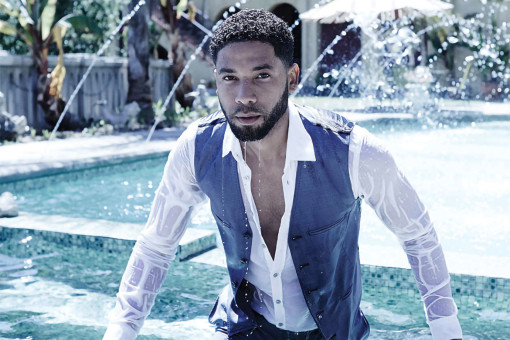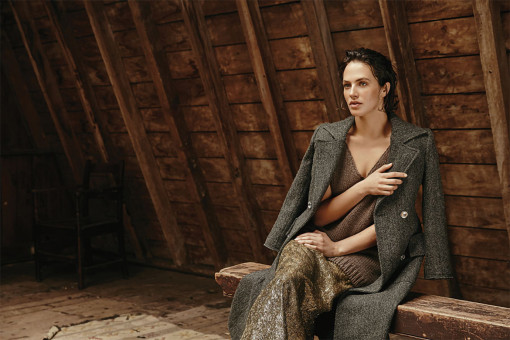At first, the gritty scene in HBO's Fahrenheit 451 looks like a standard-issue TV drug raid: battle-ready tough guys in armor kick in a door, race through rooms and slam suspects up against walls.
But then it gets nasty.
An axe-wielding young officer named Guy Montag (Michael B. Jordan) smashes a computer as his mentor, hardened Captain Beatty (Michael Shannon), looks on approvingly. Meanwhile, men with flamethrowers sweep books off shelves and set them ablaze. With history, art and imagination in peril, we see the future as envisioned in 1953 by science fiction legend Ray Bradbury.
In his best-known novel — named for the supposed burning point of paper — battalions of "firemen" incinerate books and anything else that might encourage independent thought. Radicals who hide the contraband are often burned alive.
The story focuses on the relationship between Beatty, a zealous book-burner, and Montag, an up-and-comer who may have an unnatural fondness for the printed word. It's true: Montag harbors a secret stash that includes a handwritten postcard, which he pores over like a scholar studying a sacred text. Adding to Montag's disillusionment, he falls for Clarisse (Sofia Boutella), an enigmatic young woman with ties to both the underground and the totalitarian government.
In the HBO movie, debuting May 19, director–executive producer Ramin Bahrani preserves Bradbury's bleak vision but colors it with chillingly contemporary details. "We wanted to create a world similar to today's — but different enough," says Bahrani, who wrote the script with Amir Naderi. He punctuates Bradbury's dark narrative with 21st-century references, including giant emoticons projected onto skyscrapers — all part of what he calls "a strange tomorrow."
Urging people to rat out oddball neighbors who harbor books, authorities plaster a familiar slogan onto the giant interactive screens in every home: "If you see something, say something!" Fleeing book-lovers are tracked on live TV. When they're caught, the amped-up home audience is asked, reality-show style, what the firemen should do to them. It's never good.
As a teenager in North Carolina, Bahrani was enthralled by Fahrenheit 451. "It's an amazing combination of intellectual, emotional and visceral power," he says. "And it just stays with you."
Alarmed by what he calls "the erosion of culture" — corrupt leaders, corrosive technology, mindless entertainment and a public that accepts it all — Bahrani started working on a Fahrenheit remake in 2015. (François Truffaut directed the first adaptation in 1966, starring Julie Christie.)
Bahrani has made five features — including 99 Homes, a 2014 drama (also starring Shannon) about home foreclosures — but this is his first adaptation. It was daunting, he says — as was choosing which works would be put to the torch.
The child of Iranian immigrants, he ruefully chose a copy of The Shahnameh, a 1,000-year-old Persian epic poem said to be the longest in the world by a single author. "I wanted a good representation of genders and cultures. Toni Morrison, Kafka, Dostoevsky, Joan Didion — they all had to be there," he says. "It was amazingly painful to watch."
He also included a classic so tied to fire that its publisher originally distributed about 200 copies bound in fireproof asbestos. It was called Fahrenheit 451.
This article originally appeared in emmy magazine, Issue No. 3, 2018









